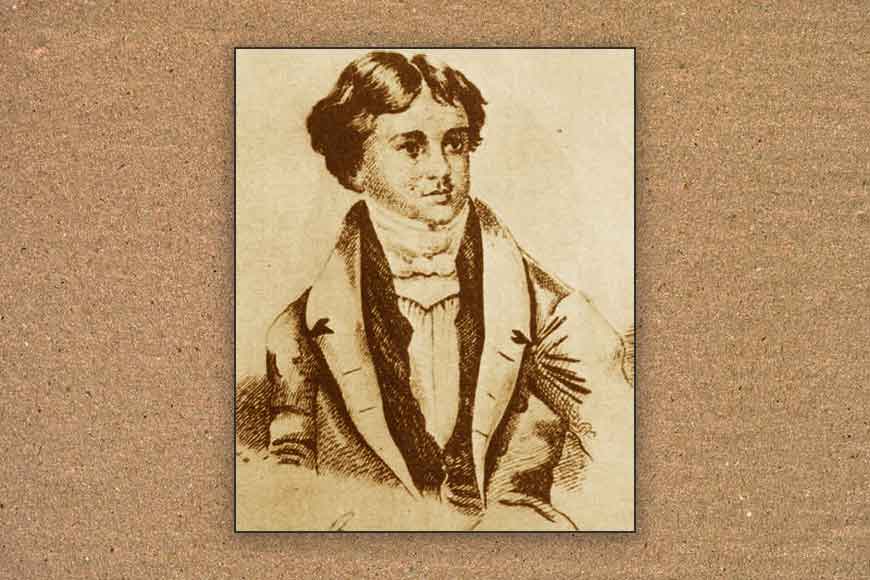Bengal – Land of Free Thinkers, where Derozio formed Young Bengal

Some great men are always remembered and some get lost in the pages of history. Henry Louis Vivian Derozio (18 April 1809 – 26 December 1831) was one such Indo-Portuguese author, poet and social reformer, whose contribution to Bengal’s social and freedom movement can never be forgotten. Yet, how many of us remember him? How many generations recall his name, a contemporary of Rammohan Roy, the European who thought India as his motherland more than any country of Europe? He is just limited to text books today and to the South Park Street Cemetery where his grave stands.
Yet, Derozio, born to a Portuguese father and an English mother, made an immense contribution for the youths of Bengal. And even two centuries later, on his birthday, we know how much Bengal owes to Derozio. A radical thinker, Derozio was the assistant headmaster of Hindu College and one of the first Indian educators to disseminate Western learning and science among the young men of Bengal. He died of Cholera, an epidemic in Bengal in those days, but his legacy and free thoughts were taken forward by his students who formed a group called Young Bengal and led prominent reforms in society, in the legal system and also in media reporting.
Derozio himself was highly influenced by David Drummond, in whose Dhurramtallah Academy school, he was a student. His liberal approach to education, and particularly his school being a mix of Indian, Eurasian and European children from different social classes, exposed Derozio to a new world. Derozio’s free thoughts are attributed to have been influenced from David Drummond, who was known as a freethinker in those days. Derozio was his favourite student, the India Gazette and Calcutta Journal at that times mentioned Derozio’s academic excellence (including several academic prizes) and his successful education graph.
The beauty of Bengal and the River Ganges influenced Derozio’s poetic mind. His poetic career began to flourish, with poems published in multiple newspapers and periodicals in 1825. In 1827, when Derozio was eighteen, the editor John Grant took notice of Derozio's poetry, offering to publish a book of his work. He soon became an assistant editor for Grant, as well as publishing in several other periodicals, and founding his own newspaper, the Calcutta Gazette.
In May 1826, he was appointed teacher in English literature and History at the new Hindu College. Derozio's intense zeal for teaching and his interactions with students created a sensation at Hindu College. He organized debates where ideas and social norms were freely debated. In 1828, he motivated his students to form a literary and debating club called the Academic Association. This was a time when Hindu society in Bengal was undergoing considerable turmoil. In 1828, Raja Rammohan Ray established Brahmo Samaj challenging the orthodox Hindus. This resulted in a backlash within orthodox Hindu society. Derozio helped release the ideas for social change already in the air. Despite his youth, he was considered a great scholar and a thinker. Within a short period, he drew around him a group of intelligent boys in college. He constantly encouraged them to think freely, to question and not to accept anything blindly. His teachings inspired the development of the spirit of liberty, equality, and freedom. They also tried to remove social evils, improve the condition of the women and the peasants, and promote liberty through freedom of the press, trial by jury, and so on. His activities brought about the intellectual revolution in Bengal. It was called the Young Bengal Movement and his students, also known as Derozians, were fiery patriots.
In 1838, after his death, members of the Young Bengal movement established a second society called the Society for the Acquisition of General Knowledge. Its main objective was to acquire and disseminate knowledge about the condition of the country.









